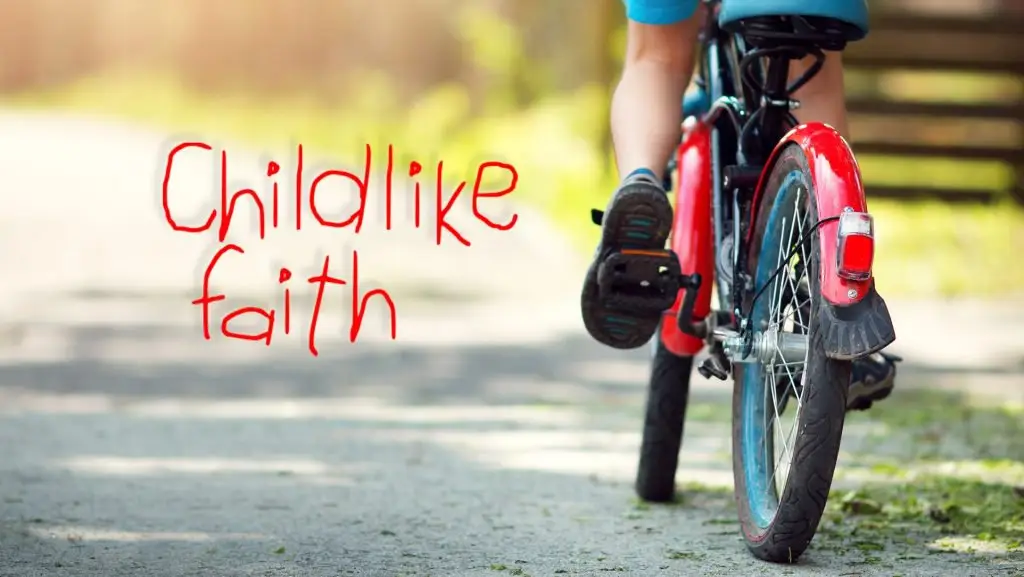We have for some time, on my swedish blog, and in our corps, been excavating the Salvation Army’s doctrines. When you talk about the doctrines it easily becomes an abstract discussion far away from any reality we might live in.
-Why should it be so complicated? -Why do we find out and know everything?
The questions are justified, on the one hand, one can easily say: We can not know anything about God, if one claims to know something about god then you have created an idol. On the other hand, one could argue that we are both encouraged and invited by scripture to seek understanding and wisdom (sophia).
Some of those who advocate a blind acceptance of biblicism and any doctrines think we need to have a childlike faith (and with this they mean a non-questioning and innocent faith).
Rachel Held Evans writes in his book “Evolving in Monkey Town”:
Those who say that having childlike faith means not asking questions haven’t met too many children. Anyone who has kids or loves kids or has spent more than five minutes with kids knows that kids ask a lot of questions. Rarely are they satisfied with short answers, and rarely do they spend much time absorbing your response before moving on to the next “why?” or “how come?- Rachel Held Evans, Evolving in Monkey Town
Children are a bit like Ronja Rumpnissar, “Voffö, Voffö fool?”
what they (children) really mean is, ‘That’s interesting to me. Let’s talk about that together. Tell me more, please.’ ” Questions are a child’s way of expressing love and trust. They are a child’s way of starting dialogue. They are a child’s way of saying, “I want to have a conversation with you.”
– Rachel Held Evans, Evolving in Monkey Town
But the “asking questions” game quickly becomes tedious if one is to respond to the questions with quick and easy answers, this will make sure that the questions never end. We believe that the child wants answers, but what the child really wants is to have a conversation, intimacy, quality time. Therefore, the answer is not that important but the conversation is, or the road to the answer ….
Psychologists say that the best way to handle children in this stage of development is not to answer their questions directly but instead to tell them stories
– Rachel Held Evans, Evolving in Monkey Town
Soon the little girl will become so lost in her father’s beautiful stories that she will forget she ever had a question to begin with — Rachel Held Evans, Evolving in Monkey town
– Rachel Held Evans, Evolving in Monkey Town
Perhaps this is the via mediabetween the biblicist /fundamentalist and the naturalistic/scientific way. To read and understand the biblical text as a mythical story.
We like children ask questions, and our God responds with mythical tale.
A myth is how things always are, but never where.
– Marcus Borg, Putting Away Childish things
“All stories are true. But some of them never happened.”
– James A. Owen, The Search for the Red Dragon
Our stories, our myths, our fairy tales affect us deeply. Scientists believe it is in our treasury of folk tales (which is an important part of our heritage, or rather what actually defines our culture) that we maintain who we are and the meaning of our lives. Somewhere instinctively we know that there is truth in story, truths hidden deep in our consciousness.
“Story is a primary language of experience. Telling and listening to a story has the same structure as our experience … The episodes of our lives take place one after another just like a story. One of the ways we know each other is by telling our stories. We live in stories”
– Steven A. Evans Quoting Boomershine in ‘Story telling Affecting worldview change’
Narrative is so important to us. We can only love other people by getting to know them, we can only know them by hearing and understanding their story. We can only invite other people to love us by inviting them into our story for to be known is to be loved, and to be loved is to be known.
Note how the woman at the well live in a depressingly small story (a corrosive story, Morrisy) and sneaks of to the well believing herself to be unlovable.
-Give me water, he says
– Are you really talking to me, she says, disbelief thick in her voice.
-Tell me your story, he implies
-I don’t have one, she lies
Caution spilling out of her very being. He then tells her, her story and her life is transformed, she is known, she is loved. She runs of to tell her new story!
-Listen, listen all and listen well, I met a man who told me my story, now come hear for yourselves.
And she becomes part of gods story, gods epic narrative encompassing time and space itself.
We all live in a story. We hear stories. We watch stories on TV and in the movies we attend. Stories are everywhere.
— Winn Griffin, God’s EPIC Adventure
The question is not: Do we really live in a story? The question is: Which story are we intentionally living in?
— Winn Griffin, God’s EPIC Adventure
September let go a long-held breath. She stared into the roiling black-violet soup, thinking furiously. The trouble was, September didn’t know what sort of story she was in. Was it a merry one or a serious one? How ought she to act? If it were merry, she might dash after a Spoon, and it would all be a marvelous adventure, with funny rhymes and somersaults and a grand party with red lanterns at the end. But if it were a serious tale, she might have to do something important, something involving, with snow and arrows and enemies. Of course, we would like to tell her which. But no one may know the shape of the tale in which they move. And, perhaps, we do not truly know what sort of beast it is, either. Stories have a way of changing faces. They are unruly things, undisciplined, given to delinquency and the throwing of erasers. This is why we must close them up into thick, solid books, so they cannot get out and cause trouble.
— Catherynne Valente, The Girl who Circumnavigated fairyland in a vehicle of her own making
“I wonder what kind of tale we’ve fallen into, Mr. Frodo?”- JRR Tolkien, The Two Towers
What kind of story are you living in? What kind of stories do you read in the Bible?
What kind of story would you like to live in? What kind of story does the bible invite you to live in?
And perhaps most importantly, how would your life change if you lived in such a story?
“A genuine story will not leave us alone. It insists, sometimes in the most impolite terms, on changing us
— Ann Morisy quoting Taylor, Journying out“Only another story can come alongside a prejudicial story and begin to melt a hardened convinced heart”
— Anne Morrisy, Journeying out
It is precisely here that the power of the biblical narrative resides (god’s power unto salvation?!). Regardless of what may be historically accurate or not, whether god created the world in seven days or if Jesus was really born from a virgin. Regardless of who wrote the text and for what purpose. When the Holy Spirit is allowed to use the biblical narrative to give our lives a new context, a new meta-narrative, then we re-think, re-pent, then we are rescued from our own tiny personal reality show and we are invited into God’s own story …
“The stories of God’s word serve as a catalyst for a new script, laying a foundation for a new worldview, resulting in life transformation”
— A. Steven Evans, ‘Story telling affecting worldview change’
Just by listening to God’s story we get to know God, and getting to know someone is to learn to love that someone.
Therefore, we, as young children must ask all our questions and see what stories God will tell us in response.
Sometimes through a bible passage, sometimes through our own lives, sometimes at the cinema, sometimes through a nice book and sometimes through someone else’s life.
Remember to press god for answers. Aske the why? the How? and the When?
This is our childlike way of saying, God I want to talk more about this tell me a story ….
and God responds, with stories, everywhere, all the time.







